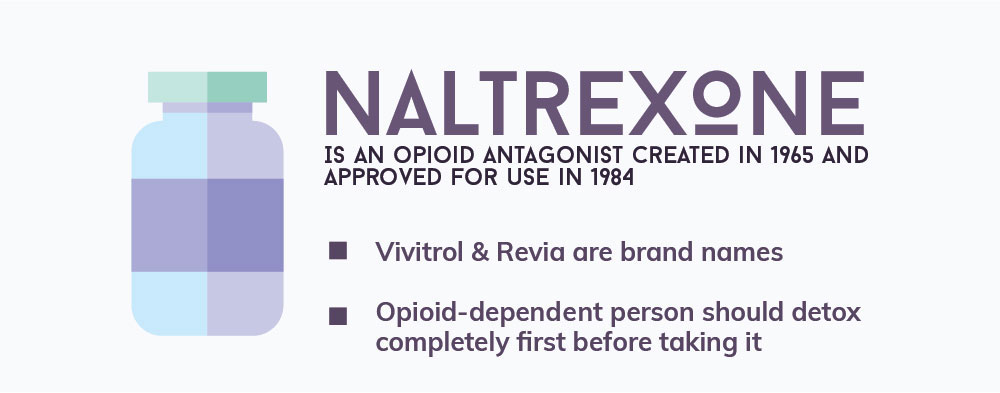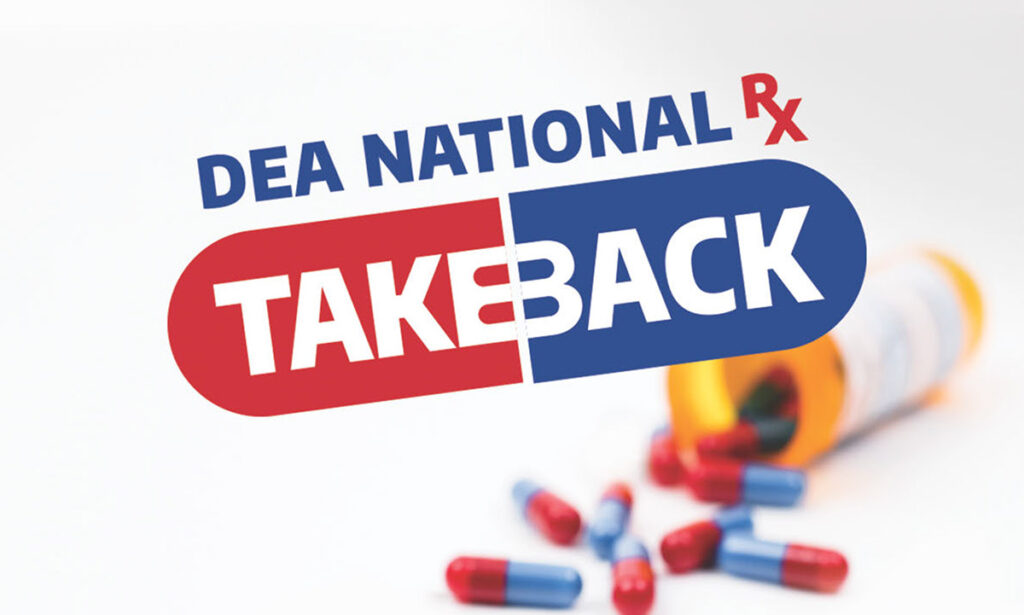In today’s modern landscape of addiction treatment, several medical interventions have emerged. One such medical breakthrough is the use of Naltrexone, a game-changer in the fight against opioid dependence and addiction. In this comprehensive guide, we’ll dive into Naltrexone therapy, its effectiveness, and its potential side effects.

NALTREXONE: Common Brand Names: Depade, Revia, Vivitrol
Understanding Naltrexone: Uses and Potential Side Effects
Naltrexone is an FDA-approved medication, primarily used in managing opioid use disorders. It is classified as an opioid antagonist and operates not by causing a high, but by blocking the euphoric and sedative effects of opioids such as heroin, morphine, and codeine. It achieves this by binding to the opioid receptors in the brain, thereby discouraging the misuse of these substances.
A critical aspect to consider before starting Naltrexone therapy is the presence of opioids in the system. It is imperative that the individual is free from opioids prior to initiating Naltrexone treatment, as the drug can precipitate an immediate and severe withdrawal if administered while opioids are still active within the body. This fact highlights the importance of a medically supervised detoxification process before starting Naltrexone therapy.
Naltrexone forms an essential part of comprehensive recovery programs for opioid addiction that include other forms of medical detoxification, such as rapid detox, psychotherapy, counseling and behavioral modifications. Notably, Naltrexone itself does not cause physical dependence or addiction, and it can be discontinued without the risk of withdrawal symptoms.
However, like all medications, Naltrexone comes with potential side effects. These can range from minor to severe and vary from person to person.
Common side effects can include:
- nausea
- headache
- dizziness
- insomnia
- anxiety
More severe side effects may include liver damage, allergic pneumonia, and serious depressive episodes.
Therefore, it’s crucial to discuss these potential side effects and any other health concerns with a healthcare provider before starting Naltrexone therapy. By doing so, individuals can make informed decisions about their treatment options.
Debunking Myths: Understanding the Non-Addictive Nature of Naltrexone
Naltrexone is not addictive. It’s an opioid antagonist, meaning it works by blocking the effects of opioids in the brain. Unlike some other substances used in addiction treatment, Naltrexone doesn’t produce euphoria or a “high”, nor does it have a potential for misuse.
Moreover, Naltrexone does not cause physical dependence. If a person stops taking it, they will not experience withdrawal symptoms, as could happen with substances that lead to physical addiction. This characteristic makes Naltrexone a useful tool in the treatment of opioid use disorders, as it can help reduce cravings and prevent relapse, without creating a new dependency.
The Duration and Alternatives to Naltrexone Therapy
The length of Naltrexone therapy varies from person to person, depending on the individual’s unique needs and response to treatment. The decision to start, stop, or change the dosage of Naltrexone should always be made in consultation with a healthcare professional who understands your medical history and current situation.
Alternatives to Oral Naltrexone
While oral Naltrexone is a beneficial treatment option for many, its daily dosing requirement can be a challenge for some individuals. In these cases, an alternative formulation might be considered, such as Vivitrol. Vivitrol is an extended-release form of Naltrexone administered via injection once a month. This formulation provides a continuous level of Naltrexone in the body, eliminating the need for daily dosing and helping ensure compliance.
Regardless of the method, it’s crucial to remember that Naltrexone is most effective when used as part of a comprehensive recovery program that includes behavioral therapies, support groups, and other supportive measures. Always consult with a healthcare provider to determine the best treatment plan for your unique situation.
Do You Need a Prescription for Naltrexone?
Yes, you do need a prescription for Naltrexone. It is a potent medication used in the treatment of opioid use disorders and is not available over the counter. Only a licensed healthcare professional can evaluate your condition and determine if Naltrexone is the right medication for you.
Before prescribing Naltrexone, your healthcare provider will typically conduct a comprehensive medical evaluation. This includes assessing your current health status, the extent of your opioid use, any co-occurring mental health conditions, and your readiness for treatment.
Given that Naltrexone can precipitate withdrawal symptoms in individuals with opioids in their system, a detoxification process is usually required prior to the start of the treatment. Consequently, your healthcare provider will likely ensure that you are fully detoxed from opioids before prescribing Naltrexone.
Remember, it’s important to follow your healthcare provider’s directions when taking Naltrexone. Do not attempt to self-medicate or change your dosage without consulting with your provider, as this can potentially lead to severe health consequences.
Warnings and Eligibility for Naltrexone Therapy: Who is a Good Candidate for Naltrexone?
Naltrexone is a valuable tool in the fight against opioid addiction, but it is not suitable for everyone. Understanding who is an ideal candidate for Naltrexone, as well as the warnings associated with its use, is crucial.
Good Candidates for Naltrexone Therapy
Ideal candidates for Naltrexone therapy are those who have a diagnosed opioid use disorder and have fully detoxed from opioids. Detoxification is necessary before starting Naltrexone because the medication is an opioid antagonist; if there are opioids in the system, taking Naltrexone can precipitate immediate and severe withdrawal symptoms.
Patients who are motivated and have a supportive and stable living environment also tend to do better with Naltrexone therapy. Additionally, it is beneficial for patients who can understand and consent to the treatment plan, comply with regular follow-ups, and manage potential side effects.
Warnings for Naltrexone Use:
- While Naltrexone can be a powerful tool in the battle against opioid addiction, it comes with numerous warnings. Firstly, it’s essential to understand that Naltrexone should never be used by individuals who are currently using opioids or are dependent on them. Doing so can trigger sudden and severe opioid withdrawal symptoms.
- Moreover, it’s vital to bear in mind that Naltrexone can impact liver function. As such, it’s not recommended for individuals with acute hepatitis or liver failure. Typically, your healthcare provider will conduct liver function tests before initiating Naltrexone treatment and will continue monitoring throughout your therapy.
- Furthermore, it’s critical to remember that while Naltrexone helps reduce cravings for opioids, it doesn’t entirely eliminate the risk of opioid overdose. If a person on Naltrexone were to relapse and use the same quantity of opioids, they were formerly accustomed to, it could result in an overdose due to a lowered tolerance.
** It is imperative to have a detailed discussion about the risks and warnings associated with Naltrexone use with your prescribing doctor and pharmacist. Although this article highlights some potential concerns, this list is not exhaustive. This blog is not intended as a sole source of health information or guidance, and it underscores the importance of seeking professional medical advice.
The Role of Naltrexone and Rapid Detox in Combatting Opioid Addiction
In the struggle against opioid addiction, both Naltrexone and Rapid Detox have emerged as critical tools. While each offers its unique advantages, their combined application often presents the most robust response in addressing opioid use disorders. By understanding the nature, implications, and synergistic potential of these treatment methods, we can equip ourselves with the knowledge to navigate the journey to recovery more effectively.
However, like any medical treatment, Naltrexone therapy requires careful consideration. The potential side effects, the necessity for thorough detoxification, regular health monitoring, and unwavering commitment to the treatment plan are all part and parcel of this treatment method. More specifically, the necessity to ensure opioid receptors are free from opiates before initiating Naltrexone treatment is paramount to avoid precipitated withdrawal.
Moreover, the role of Rapid Detox in opioid dependence treatment cannot be overstated. Rapid Detox is a medical procedure designed to expedite the detoxification process, significantly reducing the discomfort associated with withdrawal symptoms and cravings. When effectively executed under professional supervision, this treatment can serve as an excellent complement to Naltrexone therapy, aiding in achieving an opioid-free state more quickly and comfortably.
Advantages and Next Steps: Rapid Detoxification and Naltrexone Therapy
The advantages of a successful journey to recovery through rapid detoxification and Naltrexone therapy are multifaceted. Primarily, the process allows for the swift and efficient removal of opioids from the system, thereby eliminating the high and physical dependence associated with opioid misuse. Once an individual has successfully completed detoxification, Naltrexone therapy can commence immediately without the fear of precipitating withdrawal symptoms, leading to a smoother transition into the therapeutic phase of treatment. This immediate initiation of Naltrexone therapy after detox can create a substantial buffer against relapse, as it mitigates the euphoric effects of opioids, thereby reducing the desire to misuse these substances.
More importantly, the combined use of rapid detoxification and Naltrexone therapy within a comprehensive treatment plan that includes counseling, behavioral therapies, and social support can significantly improve the odds of sustained recovery. By reducing the withdrawal symptoms and eliminating physical cravings, these medical interventions allow individuals to focus more on rebuilding their lives, nurturing healthy relationships, and developing coping strategies to handle life’s stressors without resorting to substance misuse.








